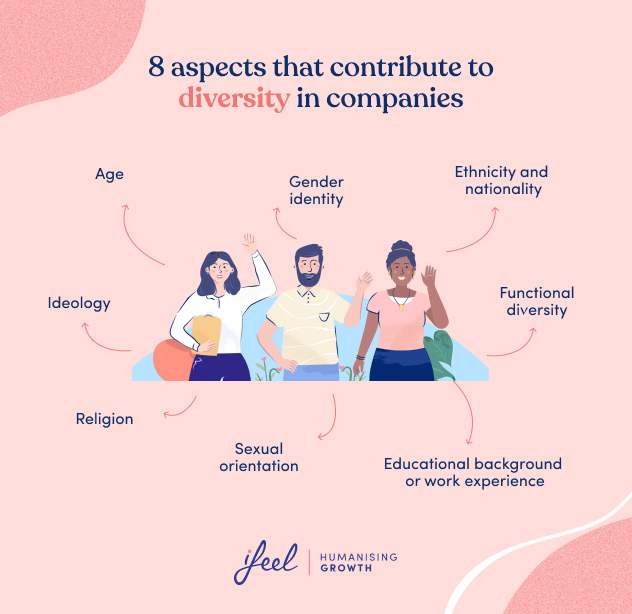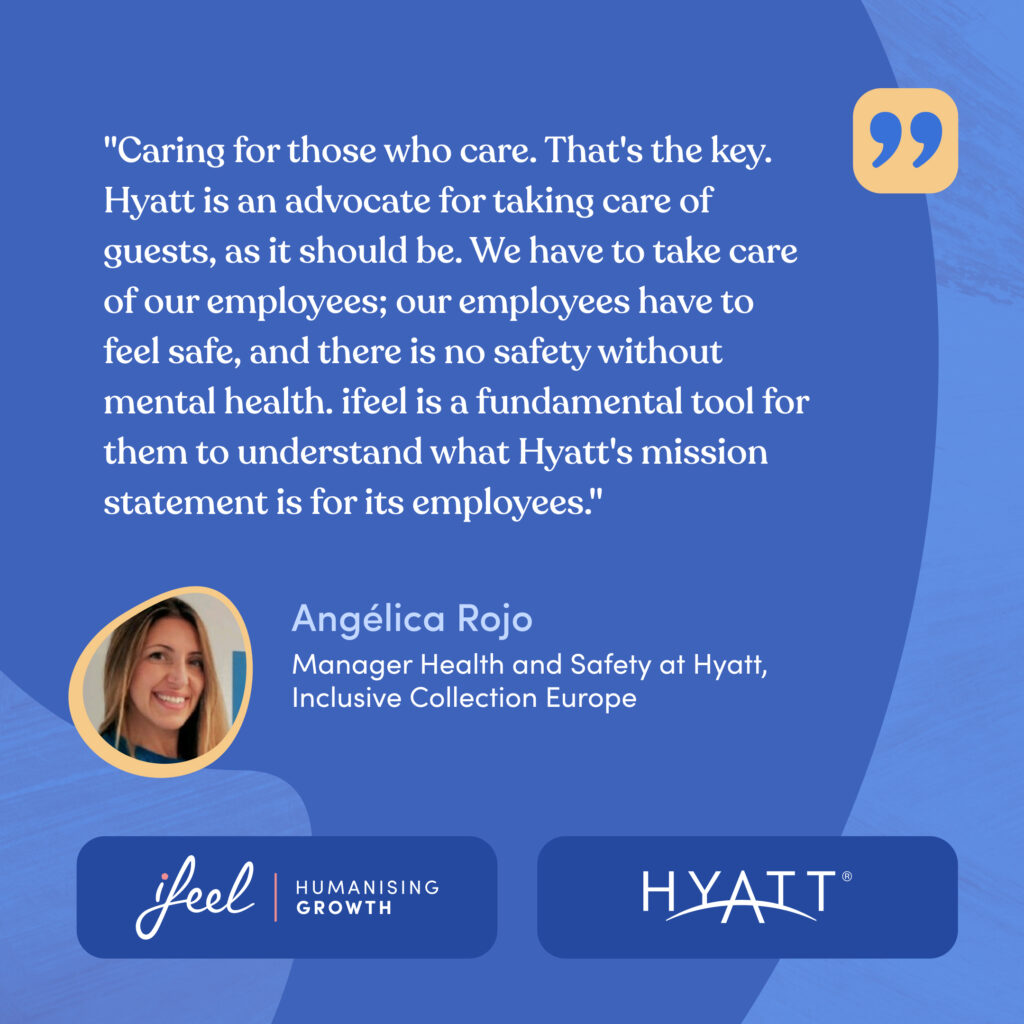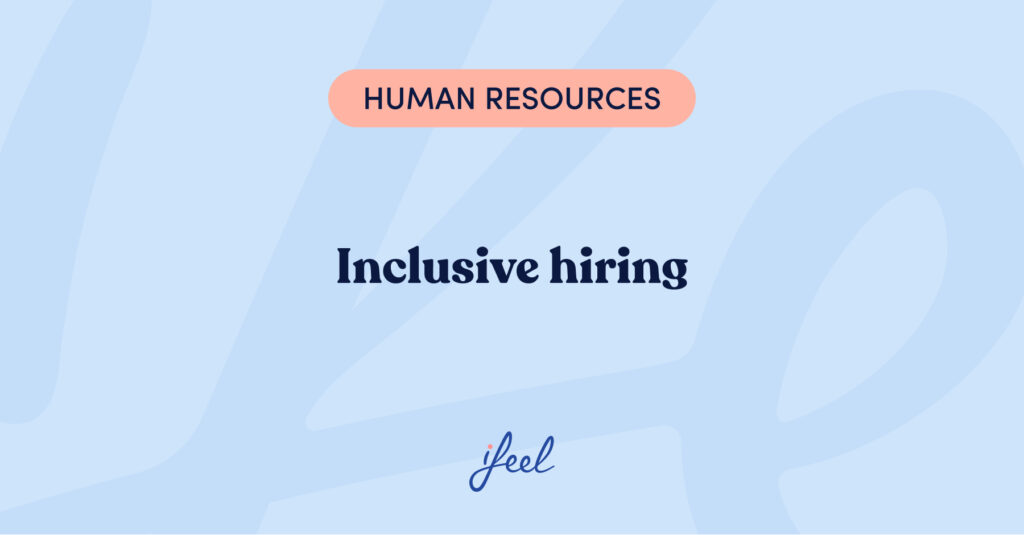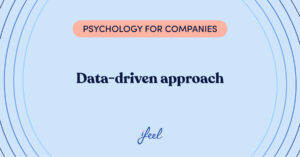Today, the benefits of having diverse talent in enterprises are widely recognised, making inclusive hiring the new standard of excellence for visionary organisations. However, reality poses a significant challenge: less than half of companies have implemented concrete strategies focused on diversity and inclusion.
This gap between recognising the importance of diversity and its effective implementation represents both a challenge and an opportunity for enterprises seeking to stand out in an increasingly competitive and globalised labour market.
Inclusive hiring goes beyond meeting quotas; it is about fundamentally transforming how enterprises identify, attract and nurture talent. DEIB (Diversity, Equity, Inclusion and Belonging) strategies are turning human resources departments into true drivers of innovation and growth.
To support this process, ifeel has designed a Guide to Integrating the DEIB Strategy into your Corporate Culture, so that you can learn key tools to promote diversity, equity, inclusion and belonging in your enterprise. Prioritise an inclusive and strengthened business culture with just one click.
Importance of inclusive hiring
Inclusive hiring is more than a trend; it is a strategic necessity for enterprises seeking to remain competitive in today’s diverse global market.
And the data backs up these statements: according to recent studies, organisations with diverse teams are 56% more likely to improve their job performance. In addition, inclusive practices favour talent retention, as 72% of employees consider diversity important when reflecting on their permanence in an organisation.
These statistics highlight the importance of implementing DEIB (Diversity, Equity, Inclusion and Belonging) strategies in all processes within the organisation, starting with recruitment strategies.
In this sense, inclusive hiring benefits employees and plays an important role in improving business results by combining diverse experiences and perspectives that can nurture creativity and problem-solving within work environments.
‘Everyone can be 100% themselves and we believe that we can learn from each other and achieve great things when everyone is different and can be themselves. We have recently moved away from ‘maternity’ and ‘paternity’ leave and opted for more inclusive parental leave.’
Kalina Pleil, People Operations Specialist at Labster, an ifeel partner enterprise.
Strategies to ensure inclusive recruitment
1. Review of current policies
The first step towards inclusive recruitment is to review existing policies and practices. This involves identifying and eliminating biases in the recruitment process, performance evaluations, and professional development programmes.
2. Inclusive language in job advertisements
The language used in job advertisements can attract or deter certain groups of candidates. Using inclusive and gender-neutral language can significantly expand the talent pool.
3. Diversification of recruitment channels
To attract a wider range of candidates, it is crucial to diversify recruitment channels. This can include partnerships with organisations representing underrepresented groups, participation in diverse job fairs and the use of recruitment platforms specialising in diversity.
4. Training in cognitive biases
Cognitive biases can significantly influence hiring decisions. Training recruiters and managers on how to recognise and mitigate these biases is crucial for inclusive hiring.
At ifeel, we have designed this handbook for HR managers, so that they can learn how to identify cognitive biases and improve selection processes in the enterprise. Download it for free!
5. Implement structured interviews
Structured interviews, where all candidates are asked the same questions in the same order, can help reduce bias and ensure a fairer evaluation.
6. Inclusive internship and apprenticeship programmes
Developing internship and apprenticeship programmes specifically targeting under-represented groups can be an excellent way to expand the diverse talent pipeline.
7. Metrics and ongoing evaluation
To ensure the success of inclusive hiring initiatives, it is essential to establish clear metrics and conduct regular assessments.

Implementation: Comprehensive transformation of the inclusive hiring process
Objective: To conduct a comprehensive review and improvement of the entire hiring process to promote diversity, equity and inclusion in the organisation.
Steps:
Audit team formation:
Create a diverse team including HR members, department leaders and employees from different levels and backgrounds.
Audit of current policies and practices:
- Review all existing recruitment policies.
- Identify areas where cognitive biases may exist.
- Analyse the last 5 job offers published by the enterprise.
Mapping and diversification of recruitment channels:
- Draw up a complete list of current recruitment channels.
- Research and propose new channels that can attract diverse groups.
- Establish at least two new partnerships with organisations that promote diversity.
Bias awareness workshop:
- Organise an interactive workshop for the recruitment team and leaders involved in hiring.
- Include case studies and role-play exercises to practise unbiased decision-making.
Redesign the interview process:
- Develop a set of standardised competency-based questions for each role.
- Create an objective evaluation rubric to score candidates’ responses.
- Train interviewers in the use of the new structured interview format.
Implement inclusive language tools:
- Use text analysis tools to review and modify language in job postings and recruitment communications.
- Ensure that all language is neutral, inclusive and welcoming.
Create a metrics and evaluation system:
- Identify key diversity and inclusion metrics for the hiring process.
- Develop a dashboard to track these metrics.
- Set clear objectives and a schedule of quarterly reviews with the leadership team.
Action plan and follow-up:
- Develop a detailed action plan to implement the necessary changes based on the audit findings and previous activities.
- Assigns responsibilities and sets deadlines for each action.
- Schedule periodic reviews to assess progress and make adjustments as needed.
This comprehensive exercise will enable the organisation to systematically address all aspects of the recruitment process, ensuring a coherent and comprehensive approach to inclusive recruitment.
The Leadership Lens🔎
Inclusive hiring is more than a trend; it is an essential strategy for leaders seeking to drive diversity and innovation within their organisations. By adopting practices that eliminate bias and promote equity, leaders not only enrich the team with a variety of perspectives, but also reflect a genuine commitment to equality.
Leaders must lead by example, implementing inclusive policies and promoting an environment where every voice carries the same weight. This builds a strong and resilient work culture, capable of facing the challenges of today’s market.
Mental health at work, one of the biggest challenges facing business organisations today
At ifeel, we know that inclusive recruitment is not just a human resources initiative; it is a business strategy that can drive innovation, improve decision-making and increase competitiveness in the global marketplace.
Furthermore, to support you in this process, ifeel has designed a Guide to Integrating the DEIB Strategy into your Corporate Culture, so that you can learn key tools to promote diversity, equity, inclusion and belonging in your enterprise. Prioritise an inclusive and strengthened business culture with just one click.
To assist in this process, our clinical team provides leading companies in their sector with a dynamic, scalable and fully personalised solution, powered by AI. We have a strategy and approach based on key data to help organisations with a global presence address one of the biggest business challenges of our time: mental health at work.
This solution offers employees a mental health care service structured at different levels depending on their needs at any given time. Discover our Resources section where you will find different materials, such as webinars, podcasts, guides for human resources on current topics and interviews with leaders of large organisations.

Data-driven methodology
Our mental health solution for enterprises employs evidence-based practices and innovative methods, backed by the latest research and a network of over 600 mental health professionals. Would you like to know more about our Clinical Research Department? Don’t forget to visit this section to stay informed about the latest studies and research in mental health in corporate environments.
We hope you found this article on employee well-being in crisis management interesting.
If you would like more information about the ROI of our personalised mental health solution for enterprises, simply request it here and our team will make a calculation adapted to the specific characteristics of your enterprise.







